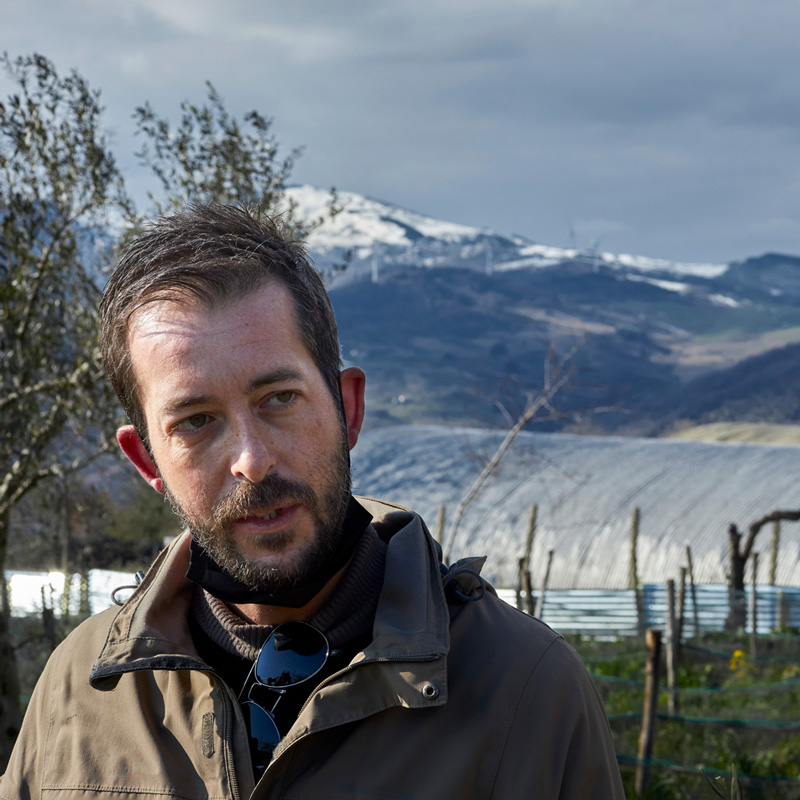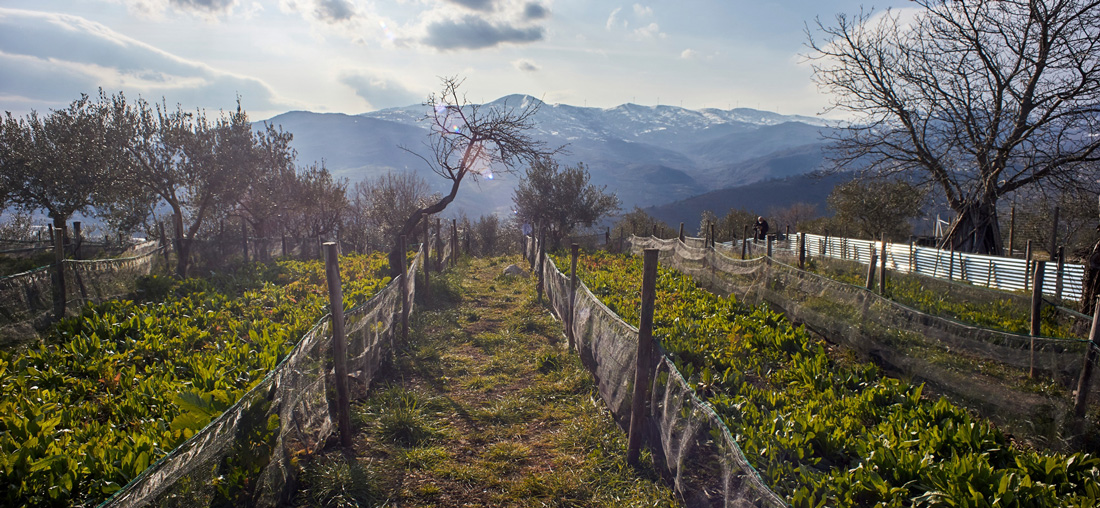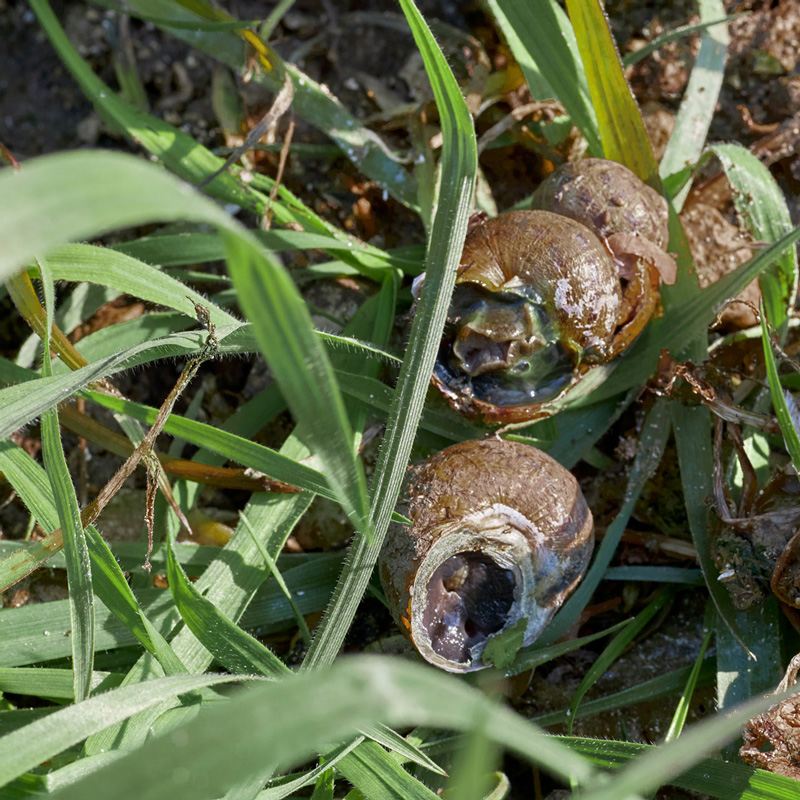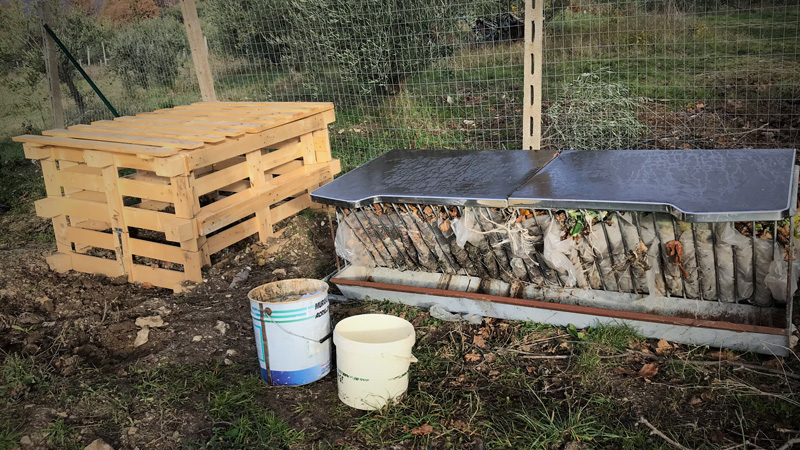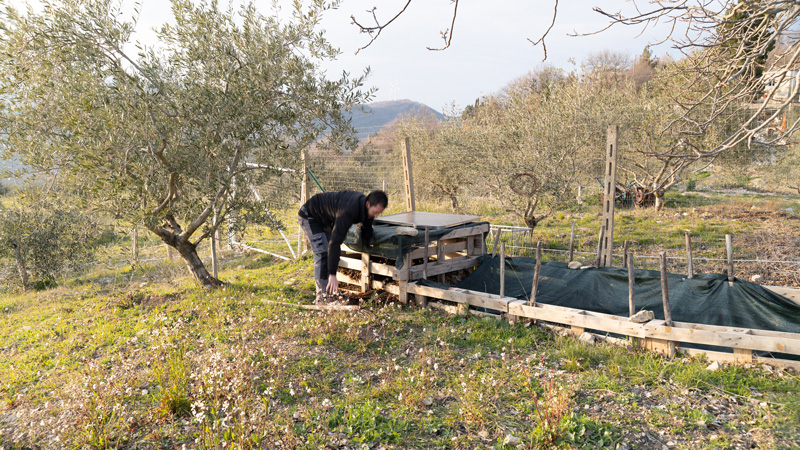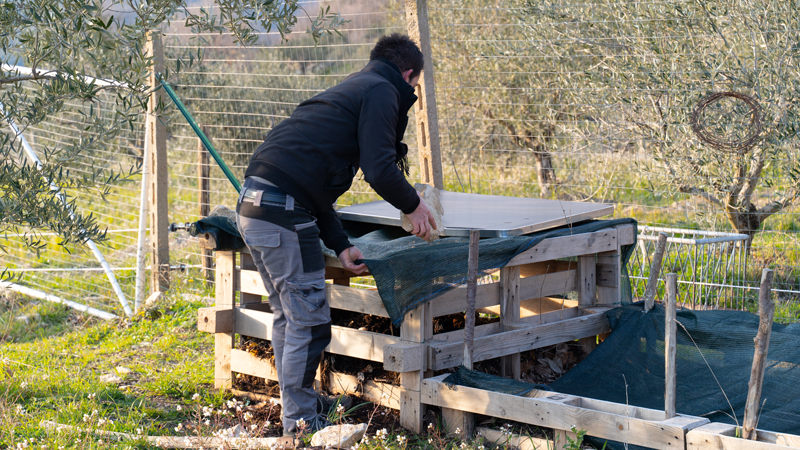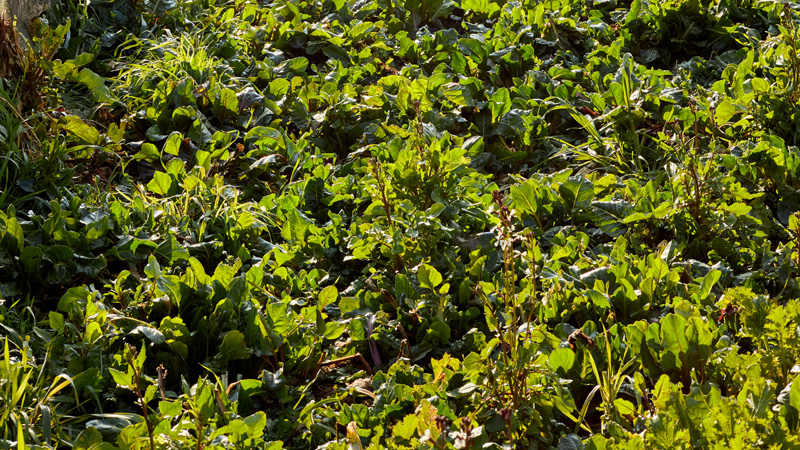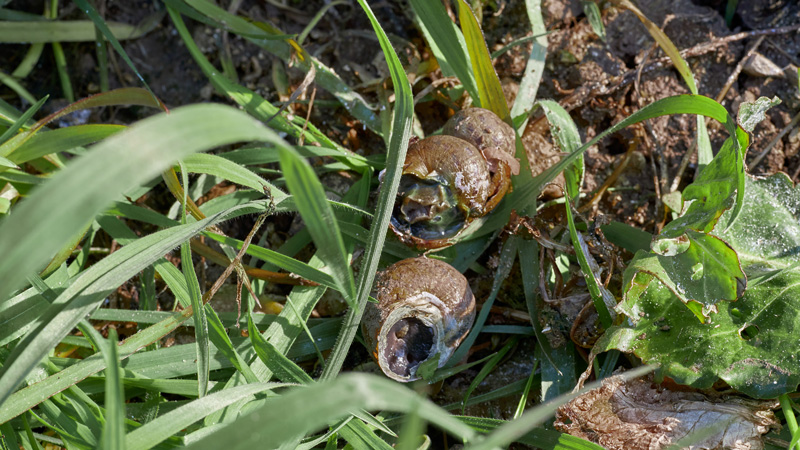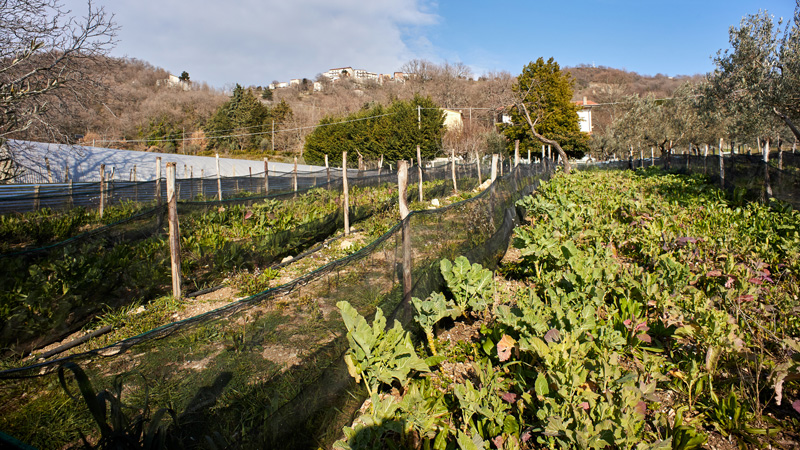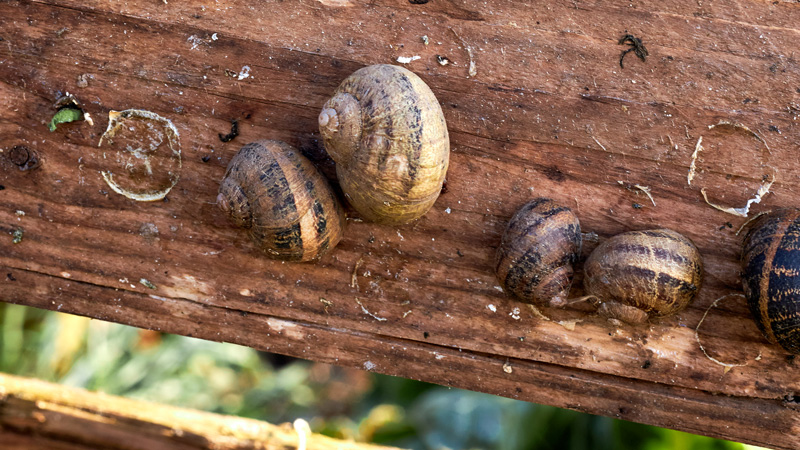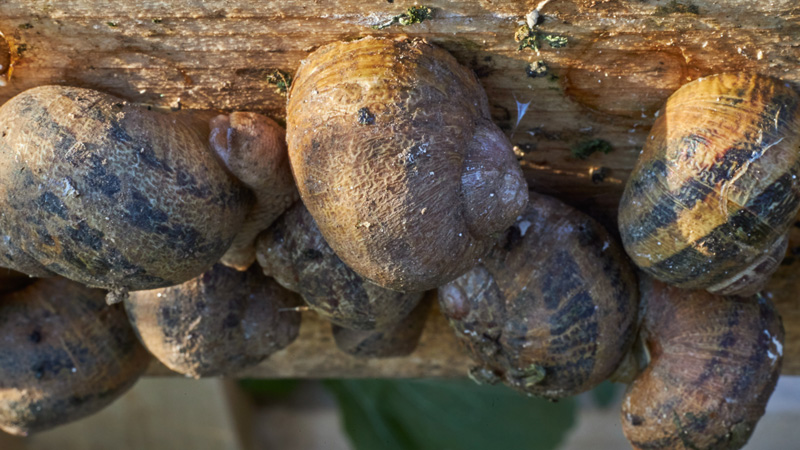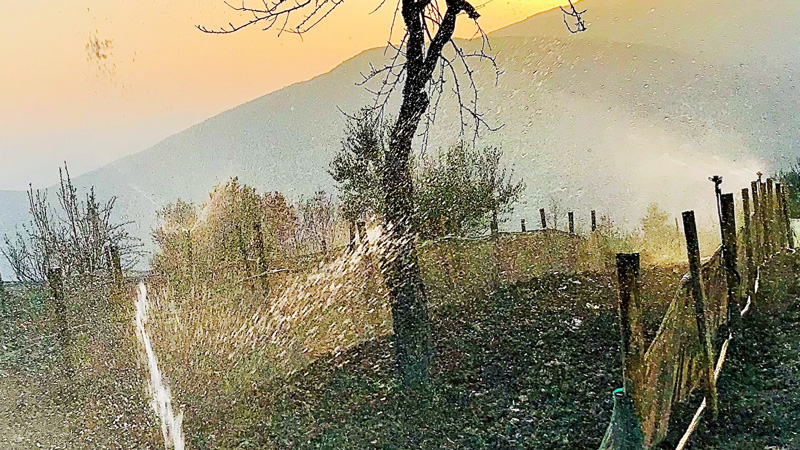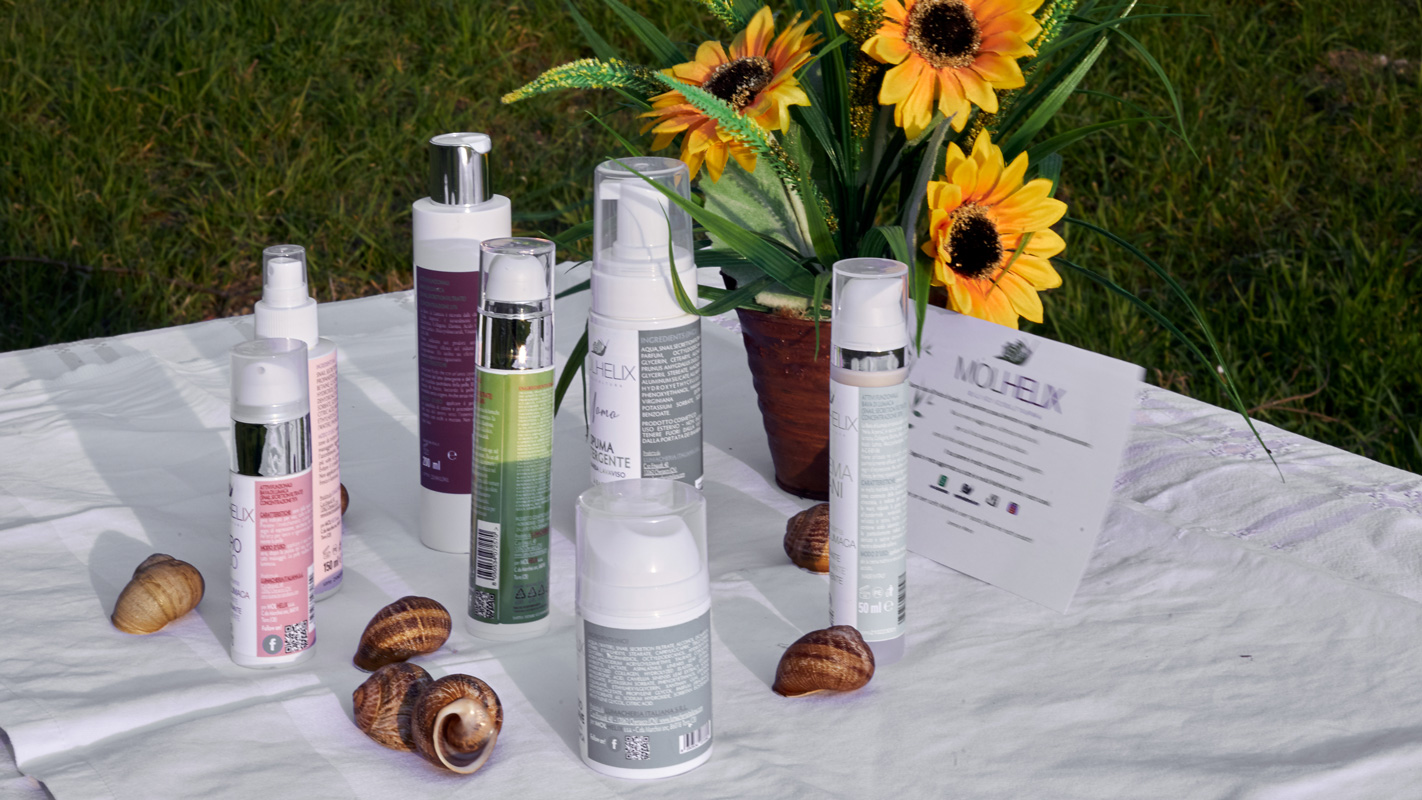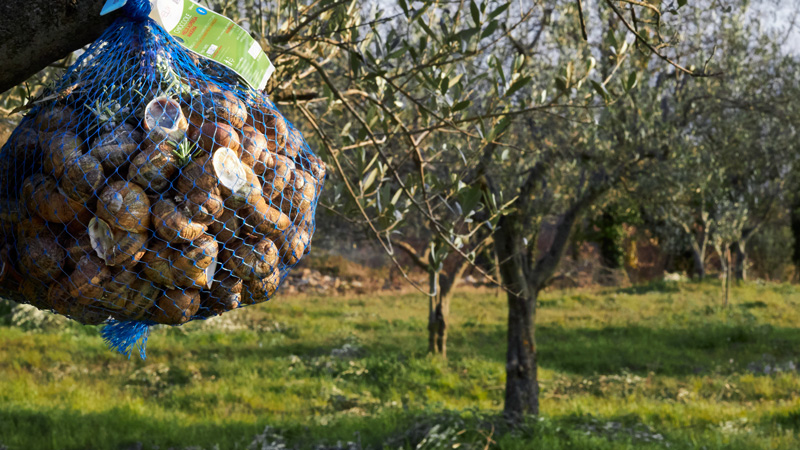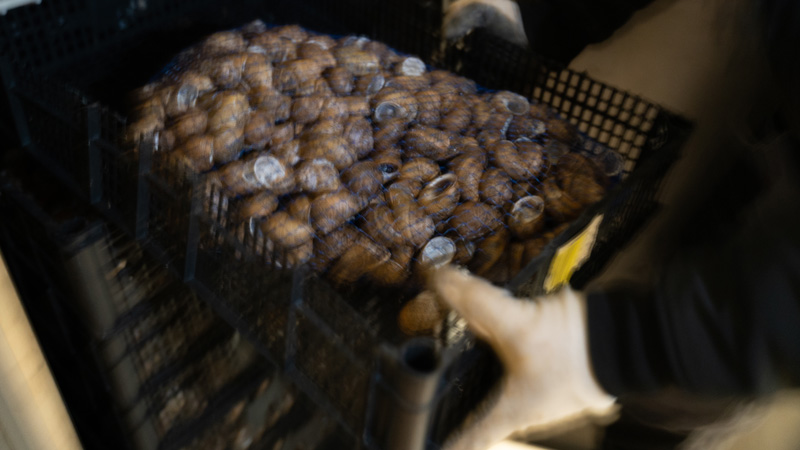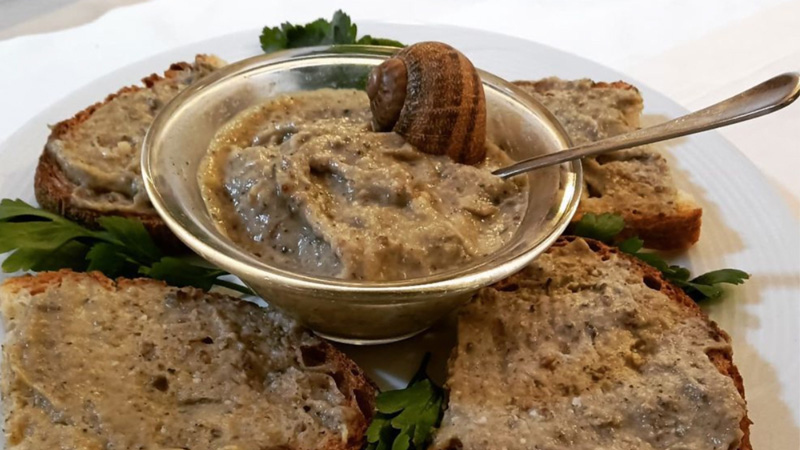

Recycling of fruit and vegetable residues from large-scale distribution.
For a reduction in the consumption of soil for snail feed and a better nutritional quality. 70 Tonnes of vegetables recovered. per year

Worm-Composting of excess fruit and vegetable residues.
To enrich the soil of the beds sown with leafy vegetables (cabbage,chard, turnips, etc.) on this abandoned vineyard land.

Extensive vegetable production to feed snails.
To provide part of the snails' nutrition directly to the snails: leafy vegetables (cabbage, chard, turnip, etc.)

Natural reproduction of snails.
Within the rearing enclosures, visual selection of reproducers (snails are hermaphroditic) inserted into dedicated breeding enclosures (August to December). December-April: Hibernation by natural burial. 1000 breeders/enclosure.

Natural feeding of snails.
Natural migration in May to enclosures planted with leafy vegetables dedicated to the growth-fertilisation of snails until maturity. 70,000 snails per year

Water-saving irrigation of the enclosures.
Provided by rainwater recovery on roofs and irrigation by misting and rain: Irrigation of production only during 3 months. 50m3 of water/m2/year.

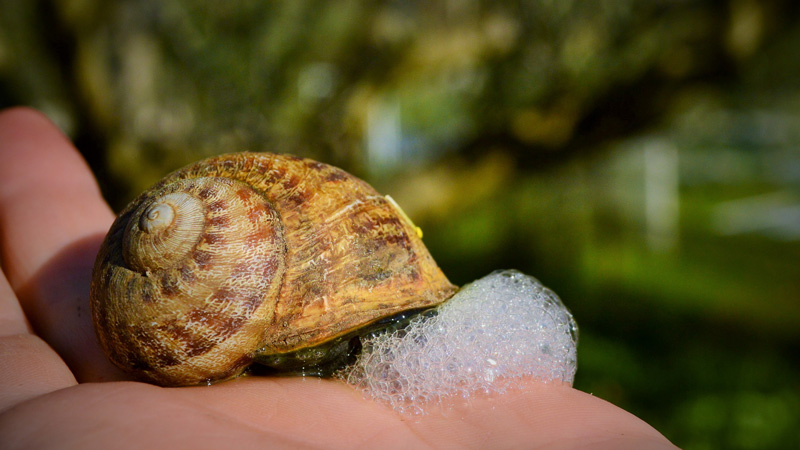
Extraction of cruelty-free slime.
Recovery of snails by means of a differential humidity process on wooden pallets. Slime extraction by gentle ozonisation and steam method, respecting the snails' well-being.

Production of cosmetics based on snail slime.
Anti-ageing skin benefits against tissue slackening, thanks to healing and regenerating properties

Innovative slow-food gastronomy and taste education.
Gastronomic innovation through the creation of dishes including snails, education in taste and the entire production cycle according to the principles of the blue economy.


